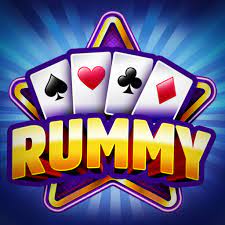Rummy Card Game Rules: A Complete Guide for Beginners
Rummy is a classic card game that has captivated players worldwide for generations. It’s known for its simple rules, strategic depth, and exciting gameplay. Whether you’re playing casually with friends or competitively in a tournament, understanding the core rules of Rummy is essential. This article provides a clear overview of the standard Rummy card game rules, focusing on the most commonly played version — the 13-card Indian Rummy. Also Download Happy Teen Patti

—
Objective of the Game
The main goal in Rummy is to form valid sets and sequences using the cards in your hand. A valid declaration requires:
At least two sequences, one of which must be a pure sequence.
The remaining cards must be arranged into sets or sequences.
—
Cards and Players
Deck: Rummy is typically played with two standard 52-card decks, including jokers.
Players: 2 to 6 players can play at a time.
Jokers: There are two types of jokers:
Printed Jokers from the deck.
Wild Jokers, randomly selected from the deck after dealing.
—
Dealing the Cards
Each player is dealt 13 cards.
The top card of the deck is placed face-up to start the discard pile.
One card is randomly selected as the wild joker.
—
How to Play Rummy
1. Drawing a Card: On their turn, a player must draw one card, either from the closed deck or the open discard pile.
2. Discarding a Card: After drawing, the player discards one card into the open pile.
3. Melding: Players arrange their cards into sequences (3+ consecutive cards of the same suit) and sets (3+ cards of the same rank but different suits).
4. Declaring: When a player arranges all their cards into valid combinations, they can declare their hand and show it to the others for validation.
—
Types of Combinations
Pure Sequence: A sequence without any jokers.
Example: 5♦, 6♦, 7♦
Impure Sequence: A sequence using a joker.
Example: 8♠, 9♠, Joker
Set: Three or four cards of the same rank in different suits.
Example: 7♣, 7♦, 7♥
—
Winning the Game
To win, a player must:
Create at least one pure sequence.
Form a second sequence (pure or impure).
Arrange all remaining cards into valid sets or sequences.
Make a correct declaration.
A valid declaration results in zero points (which is good). Incorrect declarations attract penalty points.
—
Scoring
Face cards (J, Q, K, A) = 10 points each.
Number cards = face value.
Jokers = 0 points.
The player with a valid hand gets 0 points; all others accumulate points based on their ungrouped cards.
In most formats, the game continues until a player reaches a maximum point limit (e.g., 80 or 100 points).
—
Conclusion
Rummy is a game of skill, memory, and smart decision-making. Once you understand the basic rules and start playing, you’ll discover the nuances and strategies that make the game truly exciting. Whether you’re playing with friends or in an online tournament, mastering the rules is your first step toward becoming a Rummy pro.
Would you like a printable version or a more advanced guide next? Also Download Teen Patti Fun






















